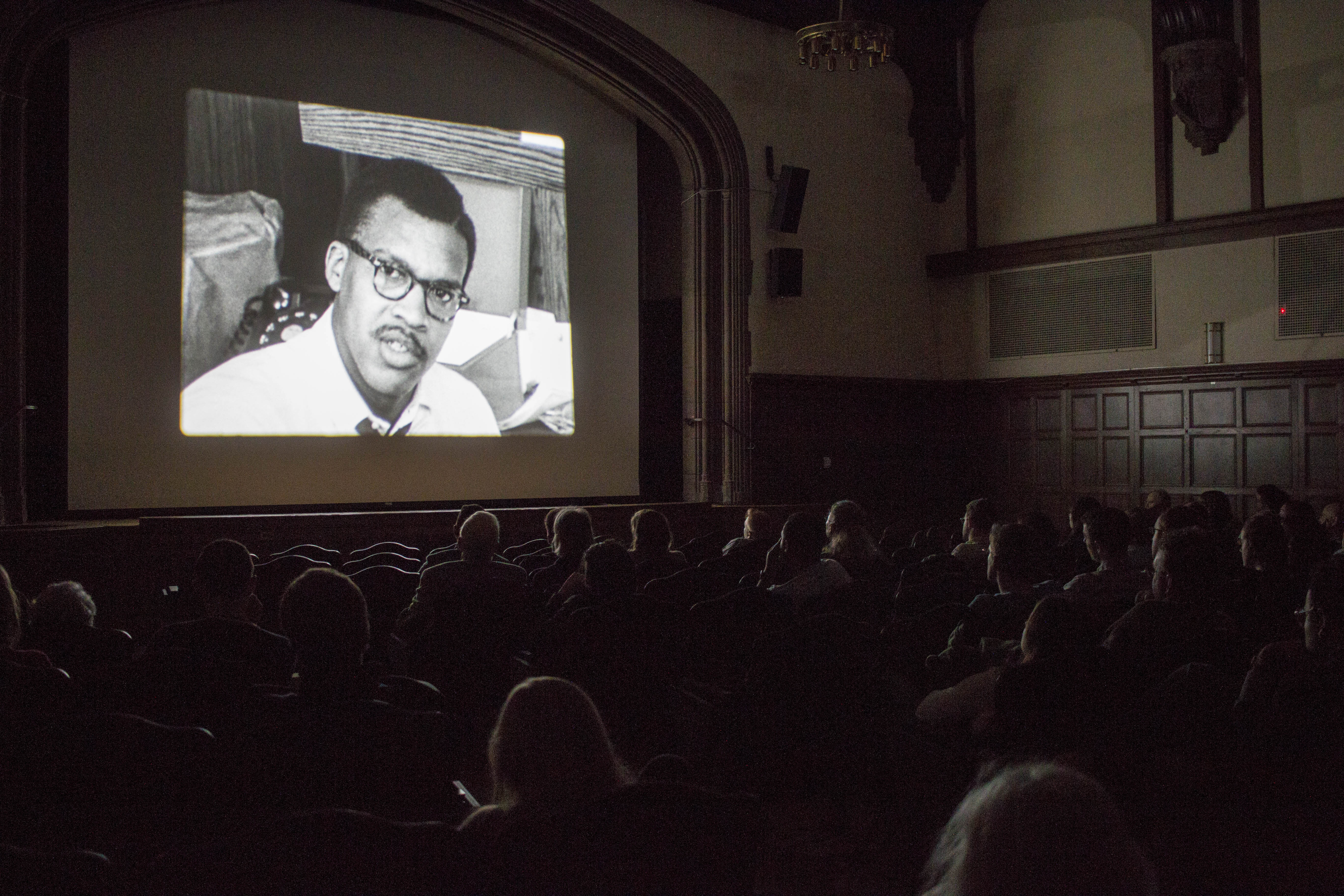
The Yale Film Study Center screened the newly preserved documentary “To Be a Man” before a crowd of students, faculty and alumni Friday.
The 1966 documentary, directed by Murray Lerner, an Academy Award winner and renowned director, producer, screenwriter and cinematographer, offered an in-depth look at life at Yale during the 1960s. The film featured appearances by notable faculty such as Classics professor Erich Segal, who went on to write the 1970’s blockbuster “Love Story,” in addition to former University President Kingman Brewster and John Kerry ’66.
A part of Family Weekend, the film was preserved from the original 16-mm A/B rolls and presented in a newly made 16-mm print. The YFSC’s Archive and Special Collections Manager Brian Meacham noted that the new format will last hundreds of years before requiring further preservation.
The film is in many ways a time capsule of what Yale was like 50 years ago,” Meacham said. “I think students will be very interested to see the things they recognize and what has changed.”
Meacham added that unlike other Yale films of the era, “To Be a Man” was “unorthodox,” because it was not a “boola-boola film” aimed at high school students considering applying to Yale. He said the film chiefly depicted intellectual development rather than just the football team or Handsome Dan, which were seen as symbols of the University at the time.
In Strobe Talbott’s ’68 review of the documentary, published in the News in 1966, Talbott noted that the film begins with shots of the University’s architectural diversity, but then “makes the obvious shift to Yale’s diversity of skills, interests and individuals.” This shift, he writes, portrays a “picture of a community questioning itself.” According to a promotional pamphlet for Friday’s screening, Talbott went on to become a journalist and then deputy secretary of state.
Lerner said he spent a year tape-recording and compiling footage portraying the educational process at Yale.
Though “To Be a Man” was at the start of his career, Lerner made this film because he wanted to “dig deeper” into University life. However, critics noted when the documentary was released that it failed to feature scenes of social or athletic life at the University.
“If people get the idea that education is more complex and more simple than they could ever imagine, I’d be happy,” Lerner said.
The film’s preservation required a significant amount of work, Meacham said. He expressed his and the YFSC’s collective desire to project films in their original format, on film itself. The work to scientifically preserve the film took place in Southern California, Meacham added.
The screening was presented as a part of the Treasures from the Yale Film Archive — an ongoing series of classic and contemporary films presented in 35 mm by the YFSC.
The screening was presented with support from Paul Joskow GRD ’72.
Correction, Oct. 10: A previous version of this article misstated Brian Meacham’s role at the Yale Film Study Center. He is the archive and special collections manager, not the archive and special connections manager.







